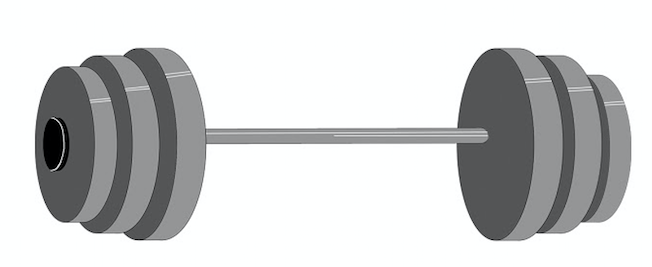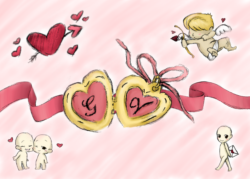When my mother was on her deathbed, I frequently heard people comment on her strength. She had a catchphrase, “fight like a girl,” and she was the living embodiment of this saying. She beat cancer twice and fell after it came back a third time — stage four breast cancer can knock out even the greatest of fighters. I couldn’t help asking myself exactly what made her so strong.
I was at 220.
I wasn’t fair to myself, just as life wasn’t entirely fair to me. I was consumed by the lack of justice I felt in my life. In an attempt to stabilize my emotions, I started working out. I was 5-foot-4 and 220 pounds by the end of my freshman year of high school. Unsatisfied, I began going to the gym with my grandmother. She showed me the treadmill — I began running.
I remember the first day I stepped onto that treadmill at our local Choice Fitness. My grandma showed me how it worked, and proceeded to leave me in the dust. I couldn’t run a mile. I could barely run at all. I walked as quickly as I could instead. I’m not sure of my exact speed—it could have been three or four mph—but it didn’t matter. What did matter was the fact that my feet began moving below me. I hadn’t found my strength yet, but I’d found my stride.
I moved on to 210, 200, 190, and 180.
I didn’t begin running for the compliments. I ran to focus my anger. When I was by myself, I would replay all of the hardest moments of my upbringing: learning my mother had cancer, taking constant abuse from my father, not having money for food. When I stepped onto the treadmill, these thoughts still wouldn’t leave my head, but something rather strange happened to them instead. They burned a fire inside of me that motivated me to keep pushing.
I’d forget how far I was running. I’d keep going to the point of complete exhaustion, and when I thought I had nothing left, I’d turn up the incline all the way and walk uphill as quickly as possible. I became focused, unstoppable.
I slammed through 170, hit 160, and stopped at 150.
I’d reached the lightest I’d ever been, and among the compliments, I began to hear faint hints of worry from my grandmother, the very person who got me into the gym. I was getting quite light for my height, and I had little to no muscle tone. I was no longer familiar with the face I saw in the mirror. Had I grown too deeply in love with the fact that I was losing weight?
I ran a Spartan Race to test my endurance and found myself more than capable of handling the distance part of the run , but I hit a brick wall at the strength tests, and embarrassingly, had to skip an obstacle because I was unable to lift a 50- pound stone for the required number of reps.
I realized that I had lost track of what strength meant. In both a literal and metaphorical sense, I was running to avoid feeling the way I did before. Running gave me a sense of control over my life, and I feared that I had grown too attached to it. Instead of facing the abuse I’d dealt with growing up, and dealing with the pain of seeing my mother pass, I ran away. I found a way to avoid confronting these emotions.
I realized my strength at 190.
I started lifting. I began eating more. I learned to use a barbell. I realized that my mother didn’t run away from her constant fight against cancer, but rather tackled it head on. I wanted to emulate this.
The gym is a community; I shared my pursuit of strength with the people I met there. I made friends instead of slamming my headphones over my ears and ignoring everyone as I ran. I realized that I found a part of my strength in the other people training.
It was also a family: Joel and Emmanuel, two men whom I only knew as The Greek Guys, and so many others. When we were in the gym together, we shared our victories. My mother’s strength was also of community. I realized that no matter what, there had always been someone around to listen to my mother, to hold her hand when neuropathy set in and she couldn’t feel anything. She was a beacon of hope, and she inspired the people around her.
I’ve come to find joy in my time at the gym, and I continue to lift (and even run!) to this day. In my journey to discover exactly what strength is, I also came to understand the very thing that made my mother so strong. It wasn’t her ability to win physical fights (of which she won many) or the fact that she found a way to feed us when we had no money to our name (which also happened quite often). Her strength was found within the web of people she knew that loved her and cared about her story. I try to bring her love for community into every single space I enter at Georgetown.
Image Credit: Egan Barnitt





